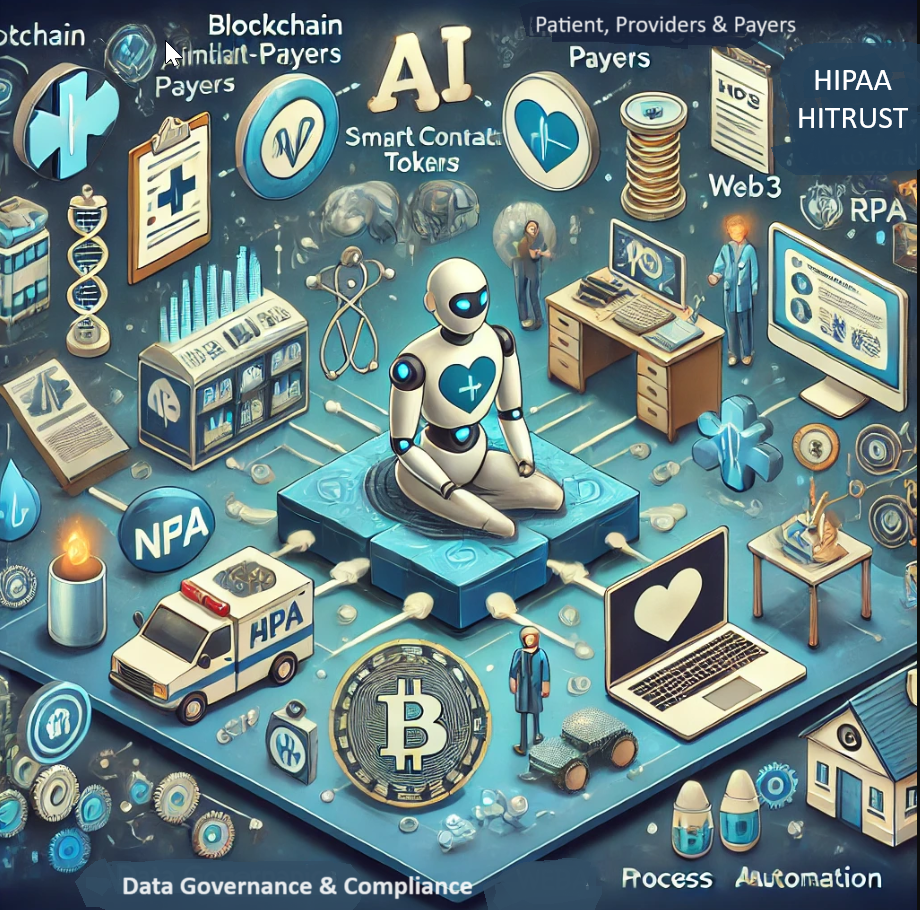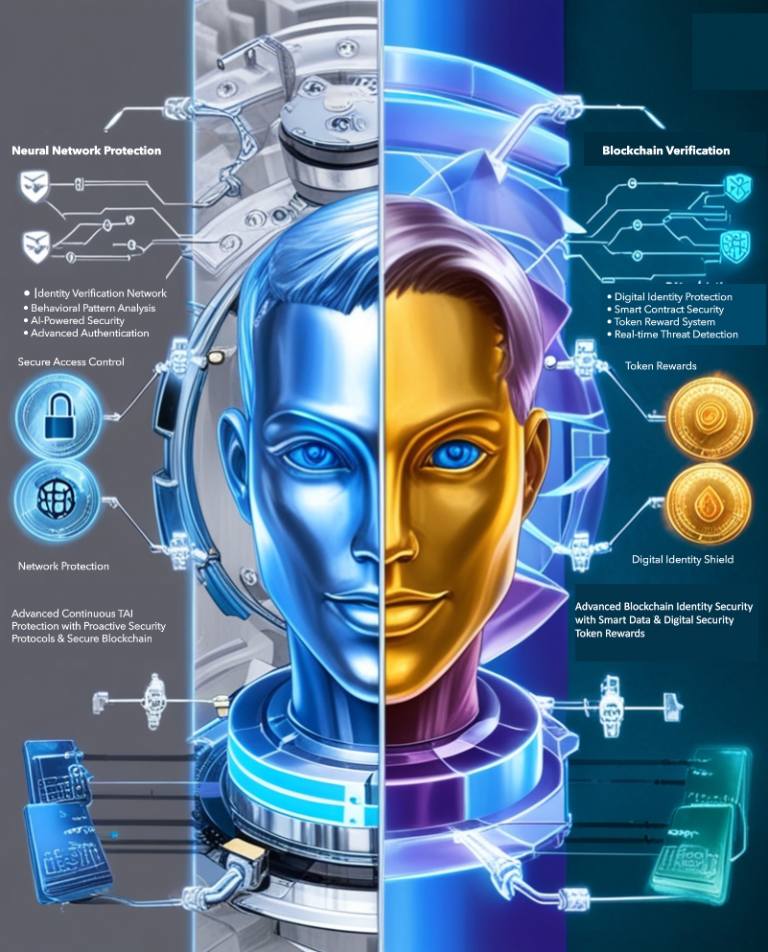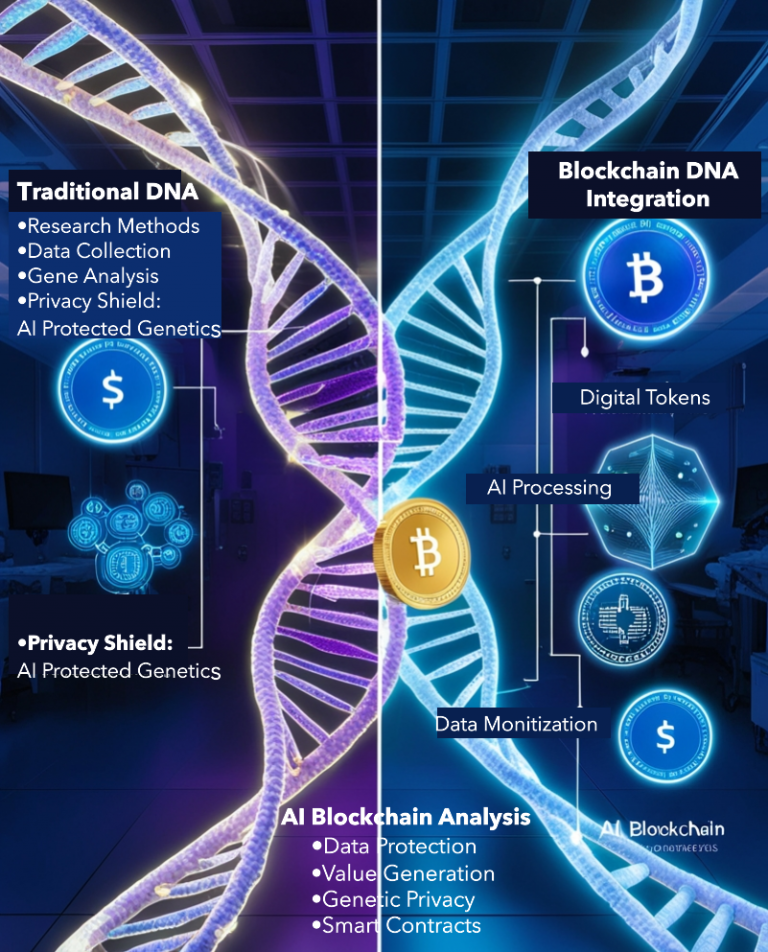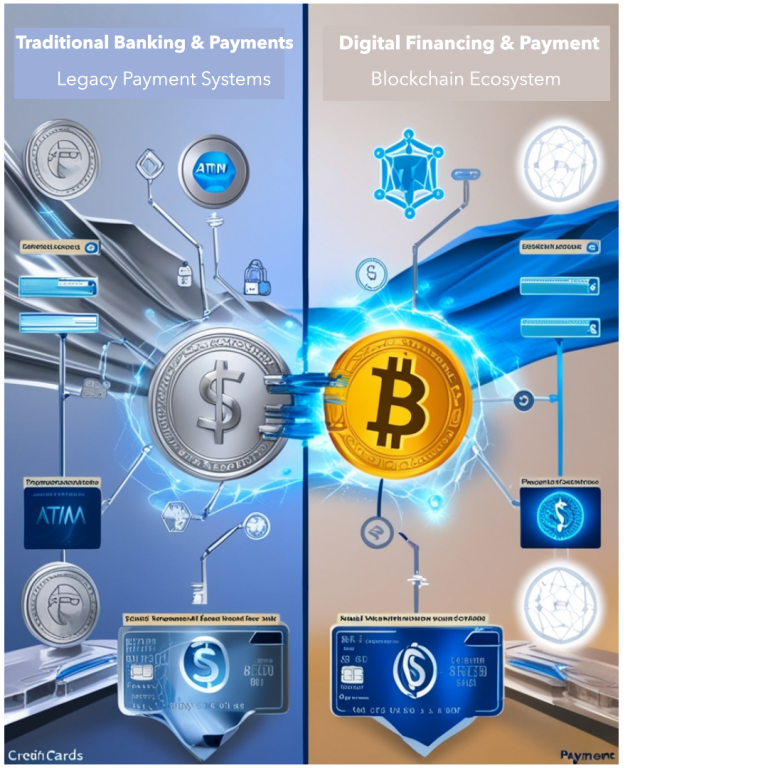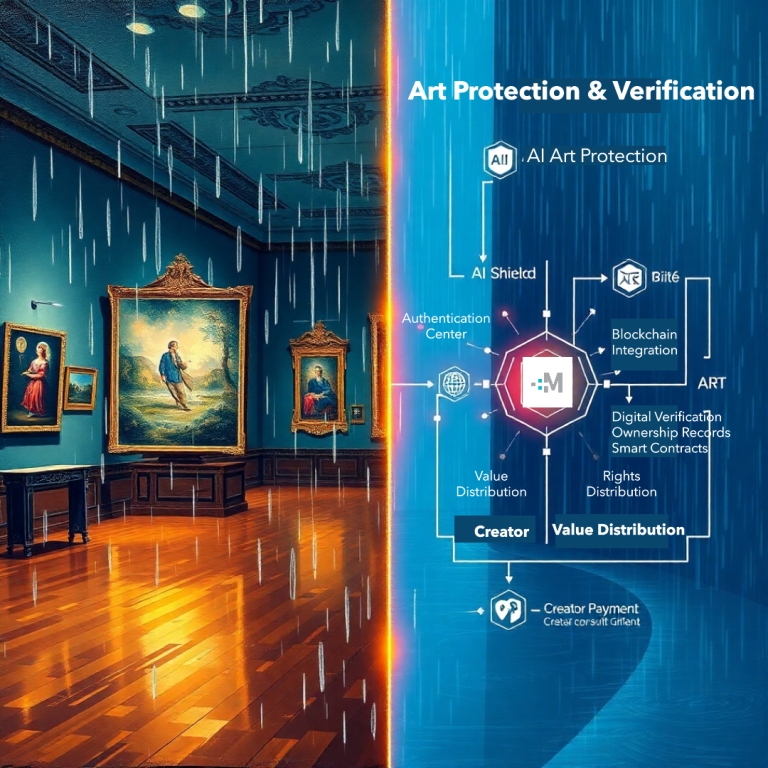Revolutionizing the Healthcare Supply Chain: Unleashing the Power of Emerging Technologies
Author: Tom Grimaldi
In the ever-evolving healthcare landscape, the supply chain stands as the backbone, ensuring that patients receive the care they need when they need it. However, this critical component is fraught with inefficiencies, outdated processes, and challenges that hinder its potential. At MPowerIQ, we believe that the time for a revolution is now. By harnessing the power of Artificial Intelligence (AI), Blockchain, Decentralized Finance (DeFi), Non-Fungible Tokens (NFTs), Robotic Process Automation (RPA), Smart Contracts, and Web3, we can transform the healthcare supply chain into a beacon of efficiency, security, and innovation.
The Current Landscape: Challenges and Opportunities
Today’s healthcare supply chain is a complex web of interactions between patients, providers, and payers. Fragmented care, administrative complexity, and high costs plague the system, leading to inefficiencies and frustrations across the board. Patients struggle with access and affordability, providers are bogged down by regulatory burdens and reimbursement issues, and payers face rising premiums and fraud. These challenges create a landscape ripe for disruption.
The Technological Revolution: A New Dawn
The convergence of AI, Blockchain, DeFi, NFTs, RPA, Smart Contracts, and Web3 offers unprecedented opportunities to address these challenges. Here’s how:
- Artificial Intelligence (AI): AI can optimize inventory management, automate procurement, and enhance decision-making, ensuring that the right products are available at the right time. It also improves patient safety by identifying anomalies and detecting counterfeit drugs.
- Blockchain: This technology provides a tamper-proof ledger for secure data sharing and transaction verification. It ensures transparency, reduces fraud, and enhances the traceability of medical products.
- Decentralized Finance (DeFi): DeFi enables secure, transparent, and real-time financial transactions. It offers new models for payment and asset management within the healthcare supply chain, reducing costs and enhancing efficiency.
- Non-Fungible Tokens (NFTs): NFTs represent unique digital assets, certifying their authenticity and ownership. In healthcare, NFTs can secure patient records, compliance certifications, and transactional records, ensuring data integrity and privacy.
- Robotic Process Automation (RPA): RPA automates repetitive tasks such as data entry, invoice processing, and claims management, freeing up resources for critical patient care activities.
- Smart Contracts: These self-executing contracts streamline and enforce agreements, ensuring compliance with regulatory requirements and automating payment and authorization processes.
- Web3: The next generation of the internet, Web3 promotes decentralization and user empowerment. It enables secure, peer-to-peer interactions, enhancing collaboration and transparency across the healthcare ecosystem.
Real-World Applications: Transforming Healthcare Operations
The integration of these technologies can revolutionize various aspects of the healthcare supply chain:
- Enhanced Care Coordination: Improved communication and data sharing among providers reduce fragmented care and improve patient outcomes.
- Streamlined Administrative Processes: Automation and standardization of administrative tasks reduce costs and errors, enhancing efficiency.
- Value-Based Care Models: Shifting to value-based care incentivizes providers to focus on quality outcomes, improving patient care.
- Affordable Healthcare Access: Digital health solutions and telehealth expand access to care, especially for underserved populations.
- Health Information Exchange: Standardized data formats and interoperability frameworks facilitate seamless information exchange, enhancing patient safety.
- Addressing Health Disparities: Targeted interventions and community-based initiatives reduce healthcare inequalities.
- Preventive Care and Population Health Management: Emphasizing preventive care reduces long-term healthcare costs and improves population health.
The Path Forward: Visionary Leadership and Strategic Implementation
Revolutionizing the healthcare supply chain requires visionary leadership and strategic implementation. It’s not just about adopting new technologies but integrating them in a way that aligns with regulatory frameworks and promotes stakeholder collaboration. Strong leadership is essential to navigating the complexities, driving policy reforms, and ensuring equitable access to technological advancements.
Conclusion: Embracing the Future
The future of the healthcare supply chain lies in our ability to embrace and integrate these transformative technologies. The potential benefits are immense: reduced costs, improved patient experiences, enhanced security, and streamlined operations. However, achieving this vision requires a concerted effort from all stakeholders—leaders, policymakers, providers, and patients alike.
As we stand on the brink of this technological revolution, we must ask ourselves:
- How can we ensure that adopting these technologies is inclusive and benefits all stakeholders?
- What steps can we take to balance innovation with the ethical considerations of patient privacy and data security?
Our Commitment
At MPowerIQ, we are committed to leading thought transformation, helping shape a mindset and a future where healthcare is efficient, transparent, and patient-centric. Join us on this journey to revolutionize the healthcare supply chain and make a lasting impact on the industry. If you want to read the entire paper, dive deeper, or participate in the business model development, please leave a comment, email, or set a time on my calendar.
Contact Us:
- Email: info@mpoweriq.com
- Set a Time: Schedule a conversation or consultation
I look forward to hearing from you and exploring how we can innovate together!

